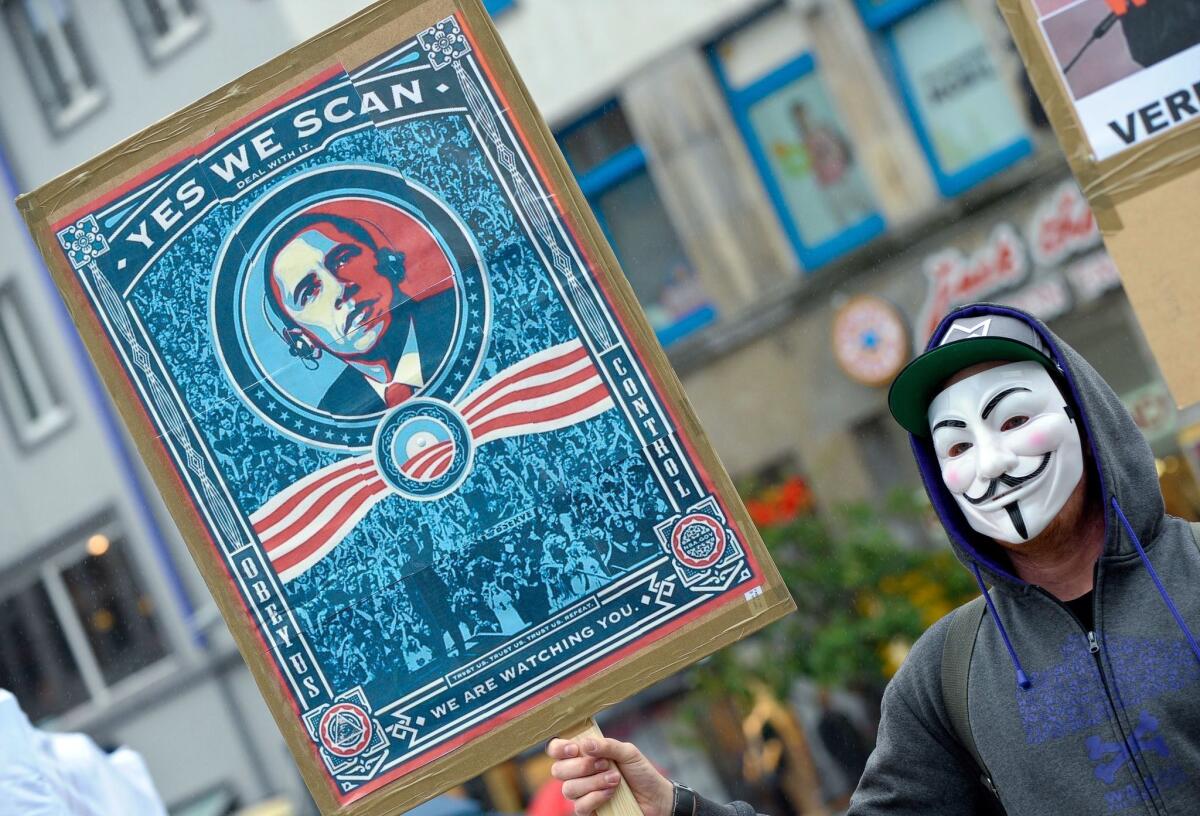Obama: Spying among allies is ‘how intelligence services operate’

DAR ES SALAAM, Tanzania -- President Obama said Monday that national security officials are evaluating a report published this weekend claiming that the United States spied on its allies at the European Union, even as he dismissed espionage among friends as commonplace.
“I guarantee you that in European capitals, there are people who are interested in, if not what I had for breakfast, at least what my talking points might be should I end up meeting with their leaders,” Obama said at a news conference shortly after arriving for a state visit to this East African nation. “That’s how intelligence services operate.”
The report published in Der Speigel, a German news magazine, says U.S. intelligence agencies bugged phones and monitored emails at EU diplomatic facilities in the United States and abroad.
Speaking to reporters here, Obama did not confirm the report but said that, as the “end user” of intelligence information, he finds little value in low-level spying, such as insight into the thoughts of such European leaders as German Chancellor Angela Merkel and French President Francois Hollande.
“If I want to know what Chancellor Merkel is thinking, I will call Chancellor Merkel,” he said. “If I want to know what President Hollande is thinking on a particular issue, I’ll call President Hollande.”
Der Spiegel said the report relied on information provided by Edward Snowden, the former National Security Agency contractor who is being sought for snatching a cache of classified documents on U.S. spying programs. Snowden is believed to be in a transit zone at a Moscow airport to avoid legally entering that country.
The United States does not have an extradition treaty with Russia, Obama said, but he added that “high-level” talks were underway to retrieve Snowden.
“We are hopeful that the Russian government makes decisions based on the normal procedures regarding international travel and the normal interactions that law enforcement has,” Obama said.
Obama arrived here Monday for the final leg of his African tour and received his biggest reception yet. Scores of people crowded the sidewalks in the heat to catch a glimpse of the motorcade on its way to the State House, a gated presidential compound facing the crystal blue water of the Indian Ocean.
Women were wrapped in loose, long “khanga skirts” printed with Obama’s visage around their waists. They waved flags and snapped pictures as Obama’s limousine cruised along the newly renamed Barack Obama Boulevard.
“The people of Tanzania love you,” President Jakaya Kikwete said as he welcomed Obama at a news conference on the State House grounds, where peacocks milled around on the grass nearby.
Although Tanzania is a popular destination for safari-going tourists, Obama and his family won’t be going out to spot the big game in the nearby wildlife parks.
But the White House announced a new executive order aimed at improving efforts to fight poaching and animal trafficking in Africa. The reorganization of U.S. trafficking agencies comes with $10 million in new aid.
Obama is also slated to see former President George W. Bush at a wreath-laying ceremony at the U.S. Embassy here, in memory of the 1998 bombing that killed 11 people.
Obama’s rise in politics was defined by his opposition to nearly all of Bush’s policies. In Africa, though, Obama has found himself trying to live up to the reputation of his predecessor, widely lauded for his commitment to AIDS relief on the continent.
Under Obama’s tenure, funding for the President’s Emergency Plan for AIDS Relief, known as PEPFAR, has fallen $228 million from a high in 2010 of $6.9 billion. Obama requested $6.7 billion for fiscal year 2014.
The White House said new technologies and bureaucratic changes allow officials to do more with less money. Obama said the PEPFAR program serves many more people today than when he took office. The administration is also in the process of handing over control and responsibility for funding PEPFAR to South Africa.
Advocates say the cuts have hampered their ability to distribute anti-retroviral drugs and have led to the closure of some clinics. Some high-profile figures, including South Africa’s retired Anglican archbishop, Desmond Tutu, in a video message released earlier this year, have urged Obama to maintain the program.
ALSO:
Obama urges ‘restraint’ in Egypt
Putin: Edward Snowden can stay in Russia if he stops leaks
Egypt’s military gives President Morsi 48 hours to resolve crisis
kathleen.hennessey@latimes.com
Twitter/@khennessey
More to Read
Start your day right
Sign up for Essential California for news, features and recommendations from the L.A. Times and beyond in your inbox six days a week.
You may occasionally receive promotional content from the Los Angeles Times.






